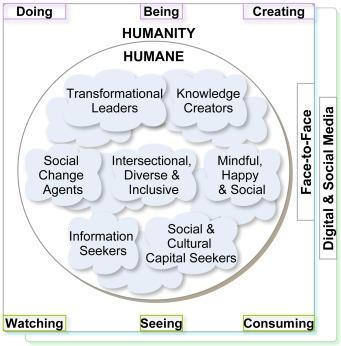unlocking Student Potential: The Role of Mindfulness in Education for Academic Success
In our fast-paced, digitally driven world, students face more distractions, stress, and pressure to succeed than ever before. Educators and parents alike are constantly searching for effective tools to help students not only excel academically but also maintain thier well-being. Mindfulness in education has emerged as a powerful solution, showing promising results for enhancing focus, resilience, emotional regulation, and ultimately, unlocking student potential.
What is Mindfulness? Understanding the Concept
Mindfulness is the practice of bringing one’s complete attention to the present moment, observing thoughts, feelings, and surroundings without judgment. In the context of education, mindfulness equips students with mental tools to manage stress, improve concentration, and build a positive classroom environment that lays the foundation for academic success.
Why Mindfulness Matters in education
Research suggests that mindfulness practices in education can considerably impact a student’s academic performance and personal growth. The growing body of scientific studies highlights a host of benefits:
- Increased attention span and improved focus
- Enhanced memory and cognitive function
- Better emotional regulation and coping strategies
- Reduction in anxiety and academic stress
- more positive classroom relationships and behavior
- Boosted motivation and self-confidence
Benefits of Mindfulness for Academic Success
Unlocking the full potential of students goes far beyond test scores; it means nurturing their intellectual, emotional, and social advancement. Here’s how mindfulness in schools creates a foundation for academic success:
1. Sharpened Concentration and Cognitive Skills
Mindful breathing and focused attention exercises teach students to filter out distractions, improving their ability to absorb and remember information.Tasks become easier to complete,and problem-solving skills are enhanced.
2. Stress Reduction and improved Emotional Health
Mindfulness helps students recognize signs of stress and anxiety,providing practical techniques to manage these emotions. Regular practice has been linked to lower cortisol levels,leading to improved mood and a better capacity to handle academic pressure.
3. increased Resilience and Motivation
Resilient students bounce back from setbacks with a positive outlook. Mindfulness fosters self-awareness and acceptance, encouraging students to persist through challenges—essential traits for academic growth.
4. Enhanced Classroom and Social Environment
mindfulness activities encourage empathy, kindness, and understanding among peers. The result? Fewer behavioral issues, stronger sense of community, and more cooperative learning environments.
Real-Life Success: Mindfulness Case Studies in Education
Many schools around the world have harnessed the power of mindfulness to drive student academic success. Let’s look at two inspiring examples:
Case Study 1: MindUP Program in Canada
The MindUP program, developed by The Hawn Foundation, integrates mindfulness and social-emotional learning practices into classroom routines. In British columbia, teachers observed remarkable improvements in student focus and empathy across multiple grade levels. Average reading and math scores increased, and overall classroom behavior incidents decreased by 30% within one year.
Case Study 2: Mindful Schools in the United States
Mindful Schools delivers mindfulness training to educators and students in over 1000 U.S. schools. Research has shown participating students display improved attention, emotional regulation, and reduced suspensions, with some schools reporting higher academic performance in standardized testing.
Practical Tips: Integrating Mindfulness in the Classroom
Bringing mindfulness into education doesn’t necessarily require major curriculum changes. here are practical strategies educators and parents can use to unlock students’ potential every day:
- Start the Day with Mindful Breathing: Allocate 2-3 minutes at the start of each class for quiet breathing or a short guided meditation.
- Incorporate Movement: Simple stretches, mindful walks, or yoga can help students release pent-up energy and refocus.
- Mindful Listening Activities: Encourage students to listen deeply to sounds, music, or each other, promoting attention and empathy.
- Reflection Journals: Ask students to write regularly about their thoughts and feelings, helping them develop self-awareness and emotional intelligence.
- Use ‘Mindful Moments’ for Transitions: Brief pauses between tasks allow students to reset their attention and reduce stress.
- Bring in Mindfulness Apps: Tools like Headspace for Educators, Calm, or Smiling Mind offer tailored exercises suitable for age groups and classroom dynamics.
Teacher & Student Experiences: first-Hand insights
“After implementing mindfulness activities every morning, my class was noticeably calmer and more focused. Discipline issues decreased, and even our shyest students participated more.”
– Emily R., Elementary School Teacher
“I used to get anxious before tests, but now I do a breathing exercise first. I remember more and don’t panic—it’s made a real difference in my grades.”
– Jonathan A., High School Student
Mindfulness Resources for Educators and Parents
If you’re interested in fostering academic success through mindfulness, these resources offer guidance, exercises, and research-based support:
- Mindful Schools – Professional training, curriculum, and resources.
- MindUP – Social-emotional learning and mindfulness program.
- Calm for Educators – Free mindfulness resources for classrooms.
- Headspace for Educators – Mindfulness meditation app with classroom activities.
- Greater Good Science Center – Research and practical activities.
Conclusion: Unleashing Academic Excellence Through Mindfulness
By integrating mindfulness in education, we empower students to thrive on every level—academically, emotionally, and socially.Mindfulness aligns perfectly with the goal of unlocking student potential, fostering not only higher test scores but also resilience, empathy, and lifelong well-being. As more schools and parents recognize its transformative power, mindfulness is proving to be an essential ingredient in the recipe for academic success.
Start small, be consistent, and watch as mindfulness unlocks the doors to brighter futures for students everywhere.

